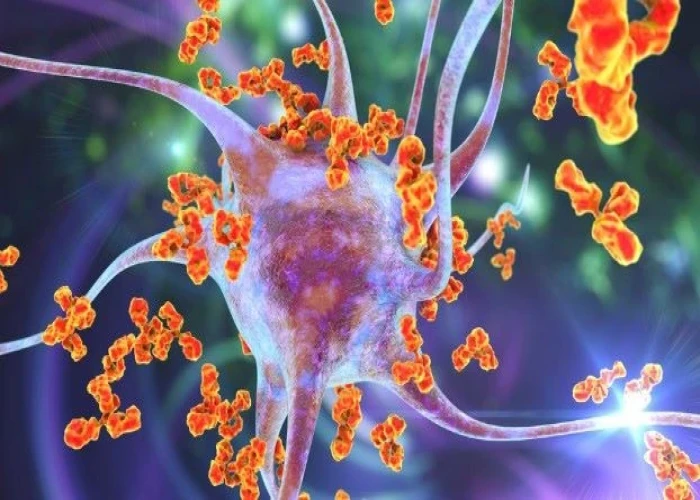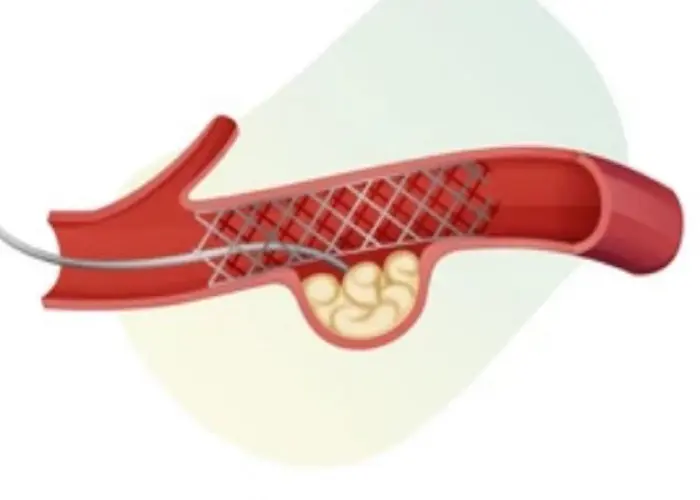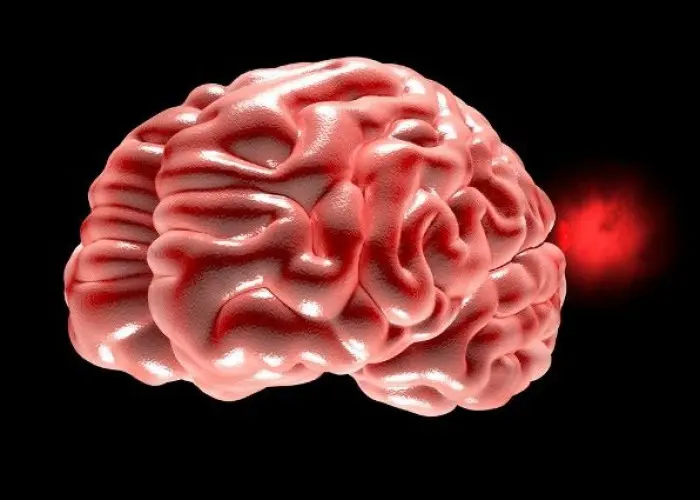 Welcome
Welcome
“May all be happy, may all be healed, may all be at peace and may no one ever suffer."
Paraneoplastic syndromes of the nervous system

Paraneoplastic syndromes of the nervous system are a group of rare disorders that can occur in people with cancer. These disorders are caused by the body's immune system mistakenly attacking normal cells in the nervous system in response to the presence of cancer cells in the body. Paraneoplastic syndromes of the nervous system can affect different parts of the nervous system, including the brain, spinal cord, peripheral nerves, and muscles.
The symptoms of paraneoplastic syndromes of the nervous system vary depending on the location and severity of the damage to the nervous system. Some common symptoms include muscle weakness, loss of coordination, difficulty speaking or swallowing, vision changes, memory problems, and changes in mood or behavior.
Paraneoplastic syndromes of the nervous system are often a sign of an underlying cancer, and diagnosis typically involves a combination of neurological exams, imaging studies, and laboratory tests to identify the presence of cancer cells or markers in the body. Treatment for paraneoplastic syndromes of the nervous system usually involves treating the underlying cancer with surgery, radiation therapy, chemotherapy, or a combination of these therapies. Immunotherapy, which uses medications to boost the immune system, may also be used to treat these syndromes.
It's important to note that paraneoplastic syndromes of the nervous system are rare, and most people with cancer do not develop these syndromes. However, if you or a loved one experiences any new or unexplained neurological symptoms, it's important to seek medical attention to determine the underlying cause and receive appropriate treatment.
Research Papers
Disease Signs and Symptoms
- Lack of balance and muscle coordination (ataxia)
- Unusual involuntary movements
- Loss of fine motor skills, such as picking up objects
- Confusion (Hallucinations)
- Seizures
- Trouble sleep (insomnia)
- Blurred vision of eye
- Memory loss
- Muscle weakness
- Weak muscle tone (hypotonia)
- A tremor, or shaking, usually begins in a limb, often hand or fingers.
Disease Causes
Paraneoplastic syndromes of the nervous system
Paraneoplastic syndromes are not caused by cancer cells directly disrupting nerve function, by the cancer spreading (metastasis), or by other complications such as infections or treatment side effects. Instead, they occur alongside the cancer as a result of the activation of your immune system.
Researchers believe that paraneoplastic syndromes are caused by cancer-fighting abilities of the immune system, particularly antibodies and certain white blood cells, known as T cells. Instead of attacking only the cancer cells, these immune system agents also attack the normal cells of the nervous system and cause neurological disorders.
Disease Prevents
Disease Treatments
Treatment of neurological paraneoplastic syndromes involves treating the cancer and, in some cases, suppressing the immune response that's causing your signs and symptoms. Your treatment will depend on the specific type of paraneoplastic syndrome you have, but it may include the following options.
Medications
In addition to drugs, such as chemotherapy, to combat your cancer, your doctor may prescribe one or more of the following drugs to stop your immune system from attacking your nervous system:
- Corticosteroids, such as prednisone, inhibit inflammation. Serious long-term side effects include weakening of the bones (osteoporosis), type 2 diabetes, high blood pressure, high cholesterol and others.
- Immunosuppressants slow the production of disease-fighting white blood cells. Side effects include an increased risk of infections. Drugs may include azathioprine (Imuran, Azasan), mycophenolate (CellCept), rituximab (Rituxan) and cyclophosphamide (Cytoxan).
Depending on the type of neurological syndrome and symptoms, other medications may include:
- Anti-seizure medications, which may help control seizures associated with syndromes that cause electrical instability in the brain.
- Medications to enhance nerve-to-muscle transmission, which may improve symptoms of syndromes affecting muscle function. Some drugs enhance the release of a chemical messenger that transmits a signal from nerve cells to muscles. Other drugs, such as pyridostigmine (Mestinon, Regonol), prevent the breakdown of these chemical messengers.
Other medical treatments
Other treatments that may improve symptoms include:
- Plasmapheresis. This process separates the fluid part of the blood, called plasma, from your blood cells with a device known as a cell separator. Technicians return your red and white blood cells, along with your platelets, to your body, while discarding the plasma, which contains unwanted antibodies, and replacing it with other fluids.
- Intravenous immunoglobulin (IVIg). Immunoglobulin contains healthy antibodies from blood donors. High doses of immunoglobulin speed up the destruction of the damaging antibodies in your blood.
Other therapies
Other therapies may be helpful if a paraneoplastic syndrome has caused significant disability:
- Physical therapy. Specific exercises may help you regain some muscle function that has been damaged.
- Speech therapy. If you are having trouble speaking or swallowing, a speech therapist can help you relearn the necessary muscle control.
Disease Diagnoses
Disease Allopathic Generics
Disease Ayurvedic Generics
Disease Homeopathic Generics
Disease yoga
Paraneoplastic syndromes of the nervous system and Learn More about Diseases

Measles

Aneurysms

Patent foramen ovale

Chiari malformation

Fibromuscular dysplasia

Dry eyes

Dysentery

Toxic hepatitis
paraneoplastic syndromes of the nervous system, স্নায়ুতন্ত্রের প্যারানিওপ্লাস্টিক সিন্ড্রোম
To be happy, beautiful, healthy, wealthy, hale and long-lived stay with DM3S.
